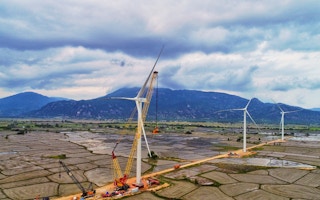As world leaders convene at the United Nations Climate Change Conference (COP27), it is obvious to all that bolder action is needed to avert disaster. The UN warns that global efforts to reduce greenhouse gas (GHG) emissions remain insufficient to limit temperature increases to 1.5 degrees Celsius, relative to pre-industrial levels.
To meet this target, decarbonising the power sector is critical. Electricity accounts for approximately 25 per cent of the world’s GHG emissions, and it also will play a critical role in decarbonising other sectors, such as buildings, transportation, and manufacturing. The challenge, then, is to achieve “24/7 carbon-free energy” (24/7 CFE): the total elimination of carbon from the electricity sector – at every hour of every day, in every grid around the world.
Research in the United States and Europe has shown that 24/7 CFE strategies have a greater impact on the decarbonisation of electricity systems than the current practice of purchasing electricity from renewable sources to match annual consumption patterns. Recent International Energy Agency modelling for India and Indonesia shows that hourly matching strategies lead to more diverse technology portfolios, with the clean, dispatchable generation and storage needed for net-zero transitions in the power sector. Critically, this approach helps electricity systems shift away from fossil fuels by accelerating uptake of the full suite of carbon-free technologies needed to deliver around-the-clock clean power.
Decarbonising energy systems worldwide is possible, but it will require collective action to accelerate the development and deployment of advanced clean energy technologies. New investments, supportive public policies, and partnerships among stakeholders are all part of the solution. That is why the UN, Sustainable Energy for All (SEforALL), Google, and a diverse group of signatories launched the 24/7 CFE Compact in 2021. The compact represents a growing global community of stakeholders that are committed to providing the support, tools, and partnerships needed to make 24/7 CFE a reality everywhere.
Among the most recent to join the 24/7 CFE Compact is the Scottish government. “Scotland was the first country in the United Kingdom to declare a climate emergency, and indeed among the first in the world to recognise the importance of taking immediate and bold action,” notes Scottish First Minister Nicola Sturgeon. “Governments must hold themselves to account in limiting global temperature rise to 1.5°C. We are committed to putting accountability at the center of all that we do. Our position is clear that unlimited extraction of fossil fuels is not consistent with our climate obligations.”
Similarly, just last month, Google and C40, a network of almost 100 cities, launched a first-of-its-kind 24/7 CFE program focusing on regional electricity grids. With urban areas accounting for over half the world’s population and more than 70% of global carbon dioxide emissions, cities have a critical role to play in driving the changes needed to tackle the climate crisis.
Developing and emerging economies will need more energy to bridge energy-access gaps, and to support economic growth and development. But as capacity expands, it must be clean. A 24/7 CFE approach can serve both purposes, providing both greater access and cleaner energy. We therefore must move faster to make 24/7 CFE cheaper and more accessible globally. According to the latest IEA data, the number of people living without electricity will rise by almost 20 million in 2022, reaching nearly 775 million. Most of that increase will be in Sub-Saharan Africa, where the size of the cohort lacking access has nearly returned to its 2013 peak.
The world cannot achieve net-zero emissions without first ensuring universal electricity access. That will require annual investments of at least $30 billion – two-thirds of which will need to go to Sub-Saharan Africa – between now and 2030. Fortunately, not only is 24/7 CFE a moral imperative, but it also represents the most cost-effective option for connecting underserved populations.
Many of these populations will otherwise continue to rely on dirtier sources of energy. Small island developing states such as Nauru, Palau, the Bahamas, and Trinidad and Tobago, for example, all have electricity grids that depend heavily on inefficient, carbon-intensive technologies such as diesel generators. These countries’ experience shows why 24/7 CFE must not be framed merely as a European or North American issue. It is a global one, and it has become increasingly urgent for developing countries on the front lines of climate change.
Implementing 24/7 CFE strategies globally will require not only funding but also measures to scale up the deployment of advanced technologies, to create more favorable market conditions, and to share best practices and data. If we can fully decarbonise our grids, the rest of the green transition should become cheaper and easier.
The 24/7 CFE Compact provides an opportunity to drive the much-needed policy change, investment, and research in this crucial next phase of climate action. We invite all governments, companies, and organisations to join us and help chart a more sustainable path toward a net-zero future.
Damilola Ogunbiyi is chief executive officer of Sustainable Energy for All, the UN Secretary-General’s special representative for Sustainable Energy for All and co-chair of UN Energy. Kate Brandt is chief sustainability officer at Google.
Copyright: Project Syndicate, 2022.
www.project-syndicate.org












